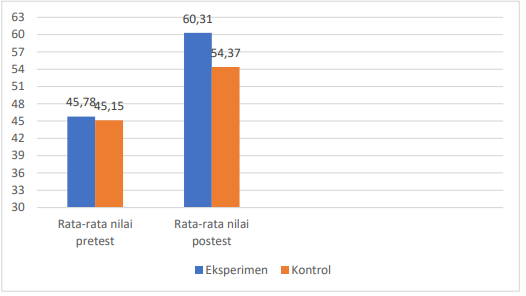Pengaruh Model Pembelajaran Thinking Aloud Pair Problem Solving (TAPPS) Terhadap Kemampuan Pemecahan Masalah Matematis Siswa Kelas X SMA Negeri 3 Pekanbaru
The Impact of the Thinking Aloud Pair Problem Solving (TAPPS) Learning Model on the Mathematical Problem-Solving Ability of 10th Grade Students at SMAN 3 Pekanbaru
DOI:
https://doi.org/10.56855/jrsme.v3i1.733Keywords:
learning model, problem solving ability, thinking aloud pair problem solvingAbstract
Purpose: This research aims to determine the effect of the Thinking Aloud Pair Problem Solving (TAPPS) learning model on the mathematical problem-solving abilities of Class X students at Senior High School 3 Pekanbaru. Methodology: This study employs a quasi-experimental research design with a Nonequivalent Control Group design. The sampling technique used is purposive sampling, resulting in Class X.8 as the experimental group with the Thinking Aloud Pair Problem Solving (TAPPS) model and Class X.7 as the control group with conventional learning. Data collection involved the use of test techniques. The data were analyzed using the normality test, homogeneity test, and independent sample t-test (t-test). Findings: The analysis resulted in a significant value of 0.031 < α (0.05), indicating the rejection of H_0 and acceptance of H_1. Significance: These findings lead to the conclusion that the Thinking Aloud Pair Problem Solving (TAPPS) learning model has an influence on the mathematical problem-solving abilities of Class X students at SMAN 3 Pekanbaru.

Downloads
Published
How to Cite
Issue
Section
License
Copyright (c) 2024 Rosana Aprilia, Zetriuslita

This work is licensed under a Creative Commons Attribution 4.0 International License.










